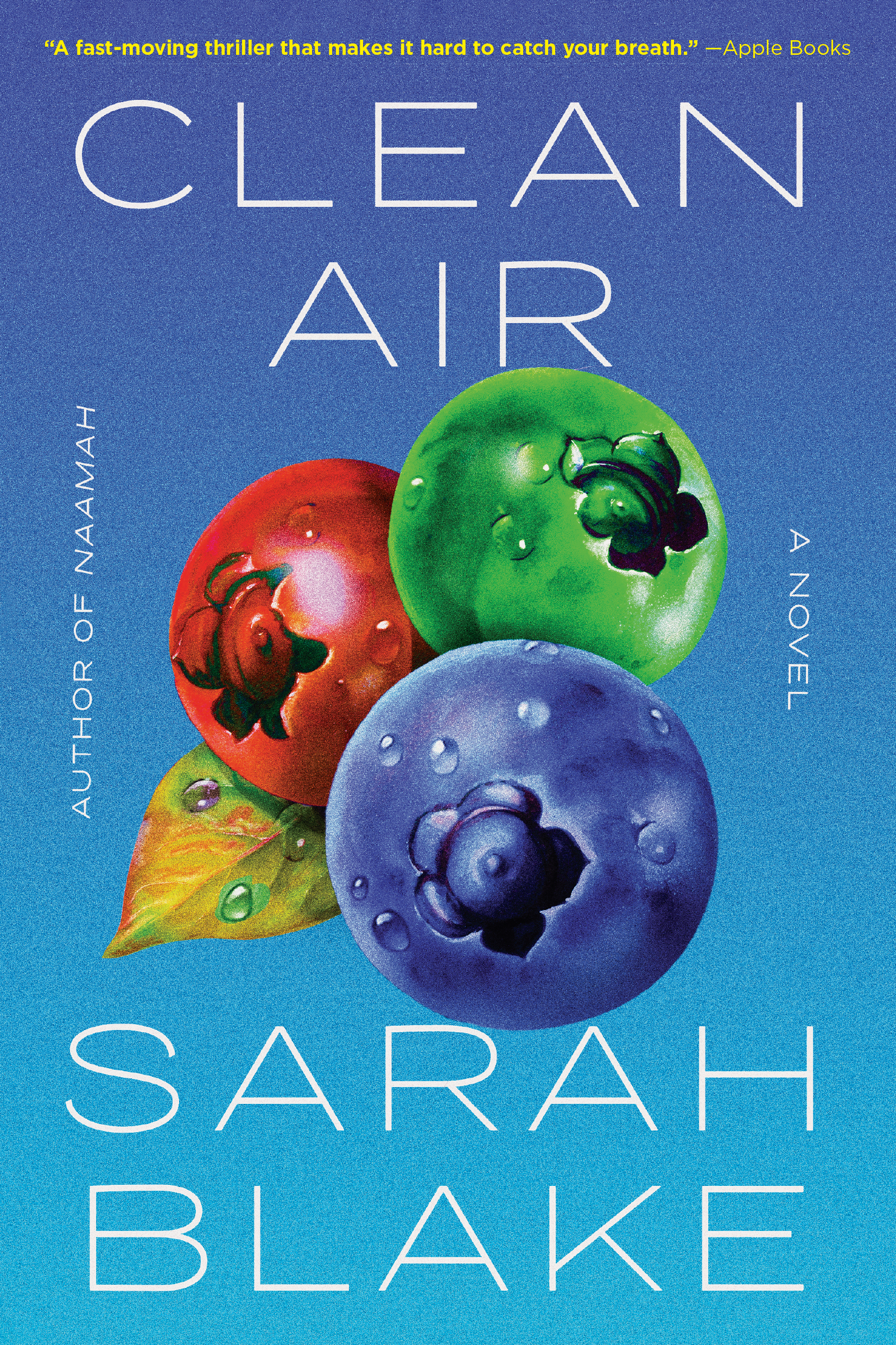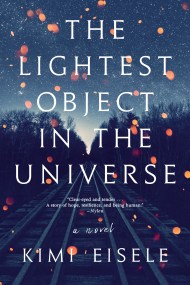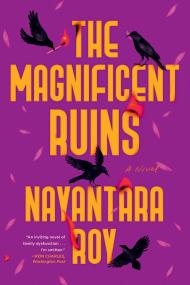By clicking “Accept,” you agree to the use of cookies and similar technologies on your device as set forth in our Cookie Policy and our Privacy Policy. Please note that certain cookies are essential for this website to function properly and do not require user consent to be deployed.
Clean Air
Contributors
By Sarah Blake
Formats and Prices
- On Sale
- Jan 31, 2023
- Page Count
- 336 pages
- Publisher
- Algonquin Books
- ISBN-13
- 9781643753416
Price
$16.99Price
$22.99 CADFormat
Format:
- Trade Paperback $16.99 $22.99 CAD
- ebook $11.99 $15.99 CAD
- Audiobook Download (Unabridged) $24.99
This item is a preorder. Your payment method will be charged immediately, and the product is expected to ship on or around January 31, 2023. This date is subject to change due to shipping delays beyond our control.
Buy from Other Retailers:
The climate apocalypse has come and gone, and in the end it wasn’t the temperature climbing or the waters rising. It was the trees. They created enough pollen to render the air unbreathable, and the world became overgrown. In the decades since, humanity has rebuilt, and Izabel has grown used to the airtight domes that now contain her life. She tries hard to be satisfied with this safe, prosperous new world, but instead she just feels stuck. And then the tranquility of her town is shattered. Someone—a serial killer—starts slashing through the domes at night, exposing people to the deadly pollen. At the same time, her young daughter Cami begins sleep-talking, having whole conversations about the murders that she doesn’t remember after she wakes. Izabel becomes fixated on the killer, on both tracking him down and understanding him. What could compel someone to take so many lives after years dedicated to sheer survival, with society finally flourishing again?
Suspenseful and startling, but also poetic and written with a wry, observant humor, this “skillful blend of postapocalyptic science fiction, supernatural murder mystery, and domestic drama is unexpected and entirely engrossing” (Publishers Weekly).
-
“Suspenseful and startling.”Kirkus Reviews “Clean Air is an amazing blend of page-turning mystery, important commentary about environmental destruction, and poignant portraiture of maternal love. Sarah Blake is a poet, and it shows in the way she takes her brilliant premise to another level with her economical prose, distilled insights, and wonderfully disturbing imagery.”—Angie Kim, author of Miracle Creek “Clean Air is the work of a rare and casually powerful literary imagination. It is set in a future that feels all too real, a post-apocalyptic novel that is both a family story and a thriller. It's a remarkable book, a compelling read that haunts with its astuteness.”—Joan Silber, author of Improvement "Sarah Blake's novel Clean Air provides the suspense of a first-rate thriller with nuanced characters whose world is shifting due to climate catastrophes. I turned the pages fast, wanting to know what happens and caring about the characters equally. The writing sings us into a future filled with chaos but also hope and beauty."—Toni Jensen, author of Carry “Sarah Blake's Clean Air is both a scintillating hunt for a serial killer and a pollen-flecked meditation on what we owe each other and the planet. I loved every page and didn't want it to end.” —Katie Williams, author of Tell the Machine Goodnight “Sarah Blake has travelled into the future to create a precise portrait of motherhood in this current moment, complete with one of the most fully realized children I have ever met on the page. Told with a poet's economy and logic, Clean Air is a clear-eyed look at the terror and tenderness of motherhood, and a parent's ordinary devotion in an extraordinary world. Be warned: you might not be able to put this book down until you reach its final page (and you'll enjoy every minute of it).”—Shruti Swamy, author of A House Is a Body “Clean Air is a moving, suspenseful page-turner set in an eerily perfect post-apocalyptic bubble of climate demise. It's a beautiful and harrowing story of motherhood and the fight for a hopeful future for the ones we love. Sarah Blake's vivid and sharp observations of family, grief, and a world on the brink of collapse are so compelling that I eagerly raced to the last page. I couldn't put it down.” —Crissy Van Meter, author of Creatures
I>The Nerd Daily
“A cli-fi novel for our times . . . Blake explores profound questions of human nature and free will. . . [and] invites a profound consideration of the decisions we’re making in this very moment.”
—Oprah Daily
“Blake’s originality is on full display in this post-climate-apocalypse, murder mystery, science fiction, thriller extravaganza.”
—Ms. Magazine
“[An] engrossing and suspenseful tale that simultaneously delivers a lyrical homage to motherhood and a piercing vision of the fragility of humankind’s relationship with the natural world.”
I>Booklist
“[An] eerie dystopian tale… Novelist and poet Sarah Blake wows with her blend of chilling suspense and deadpan humor . . . Clean Air is a fast-moving thriller that makes it hard to catch your breath.”
—Apple Books, Best of the Month: February
“[A] suspenseful ecological science fiction novel.”
—Tor.com
“A post-post climate apocalypse story combining speculative fiction and a poet’s sensibilities.”
I>Den of Geek
"Clean Air features an encouraging vision of a future where humanity agrees to work together . . . It offers hope for a future where intimacy and family still matter, even under the direst circumstances.”
I>The Ancillary Review of Books
"The skillful blend of postapocalyptic science fiction, supernatural murder mystery, and domestic drama is unexpected and entirely engrossing.”
I>Publishers Weekly
“Interesting . . . A quick read with a timely premise.”
Newsletter Signup
By clicking ‘Sign Up,’ I acknowledge that I have read and agree to Hachette Book Group’s Privacy Policy and Terms of Use









